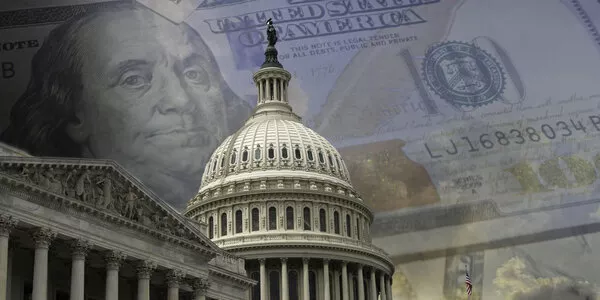
Weekly Update - Out of the blue?
Approaches to fiscal policy within the EU have long been deeply divided. Some countries like France have argued for budget union financed by EU debt issuance. Others, led by Germany, have remained opposed to fiscal transfers to weaker, more indebted states such as Italy. With unanimity among the 27 remaining member states required, EU fiscal policy seemed in deadlock. This week’s announcement came out of the blue. On May 18, Chancellor Merkel and President Macron announced plans for a €500bn recovery fund to help the EU economy rebuild after the deep recession sparked by lengthy lockdowns to stem the coronavirus pandemic. The International Monetary Fund (IMF) has estimated that the euro zone economy will contract -7.5% this year and recover by only 4.7% in 2021. The €2.7tn in fiscal support unveiled so far – some 23% of euro zone GDP – has been dominated by national governments led by Germany, with direct EU funding only representing 4% of the total. Fiscal flexibility is unevenly distributed across the region. In Italy, the IMF estimates that debt will reach 155.4% of GDP this year, up by 20.7 percentage points from 2019, while France and Spain will see debt-to-GDP ratios of 115.4% and 113.4% respectively. In their 2010 academic study This Time is Different, Reinhart and Rogoff suggested that real economic growth tends to slow when debt rises above 90% of GDP. Clearly, Germany and the Netherlands – with forecast ratios of 68.7% and 58.3% – are better positioned than their neighbours. Moreover, Italy and Spain – with CoViD-19 deaths of 537 and 598 per million – have suffered more from the pandemic than Germany with 98 fatalities per million. The recent German Constitutional Court ruling on the ECB’s Public Sector Purchase Programme (PSPP) for buying government bonds served to underline the potential constraints on the central bank’s policy flexibility and the uncomfortable bind imposed on the German government (see our Weekly Update Cat Among the Pigeons). Luckily, opinion polls show high approval ratings for Chancellor Merkel’s handling of the crisis, opening a window of opportunity. Against this backdrop, the Franco-German agreement broke new ground. Merkel and Macron have agreed that 1) the €500bn recovery fund should be financed by bonds issued directly by the EU and jointly guaranteed by its members, 2) the European Commission budget should be raised from 1.2% to 2% of members’ gross national income to enable the EU to service the debt and 3) the fund’s disbursements should come as grants rather than loans to be repaid. These proposals will now form the basis for the Commission’s formal recovery fund blueprint which is due to be published on May 27. Of course, there will be fierce opposition, most notably from the Netherlands, Austria, Denmark and Sweden, which continue to espouse rigorous budget principles. But with Germany abandoning its previous adherence to austerity and reaffirming its alignment with France, an agreement now seems possible.
Bottom line. It is clear that the euro zone economy will require new stimulus as it emerges from the life support provided by current packages, and that such measures should be directed to those economies most in need, just as announced by France and Germany. The currency market reacted by marking the euro 1% higher against the Swiss franc, suggesting a positive shift in the outlook for the euro zone. Whether that shift might materialise or not will become clear at the next European Council summit on June 18-19.





